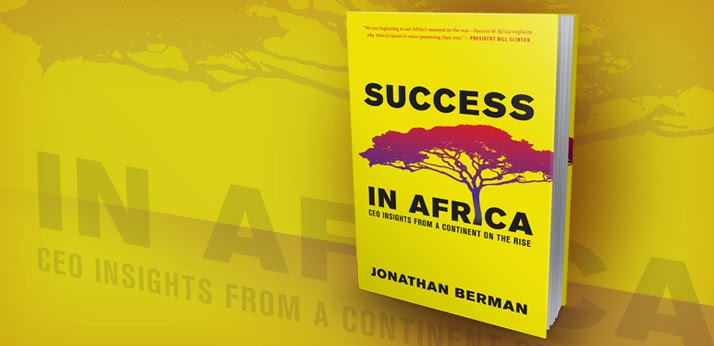This New York Times article offers some potentially useful insights for companies and their investors.
As ever journalists can get excited about growth rates that out perform other markets, even from a low base.
The International Monetary Fund believes that economic growth in sub-Saharan Africa will average 6.1 percent this year. That's compared with 3.7 percent worldwide.
Rwanda's commodity exchange, with NASDAQ supplied terminals has held an initial six auctions over the past year. This is all part of an attempt by Rwanda to innovate given the country's lack of natural resources when compared with mineral rich neighbours.
Perhaps this is a blessing in disguise. In any case Rwanda wants to become a high tech trading and financial hub in central/East Africa.
So how are they doing? Pretty well, at least according to the NY times.
Paul Kukubo chief executive of the commodity East Africa Exchange hopes that his commodity exchange "...could serve the region and perhaps be a springboard for the rest of Africa”.
He's not alone in being enthusiastic about Rwanda. The NY times suggests that:
"Rwanda offers an alternative model, analysts say, a country where the economy has grown an average of nearly 8 percent over the last four years because of increased agricultural productivity, tourism and government spending on infrastructure and housing. Despite having a population of just around 12 million, the consulting firm A.T. Kearney last week named Rwanda the most attractive African market for retailers in its first ever African Retail Development Index."
The NY Times piece also notes that:
"So now, more than ever, Rwanda is on the hunt for investors rather than donors. Last April, it sold $400 million in bonds to investors from around the globe, part of a record year for African bonds that underscored how a continent once known for debt relief found a world eager to take a stake in it...
...Rwanda hopes to turn itself into an information-technology hub for the roughly 135 million people in the East African Community, a regional common market. The nation has wired itself with well over 1,000 miles of fiber optic cables, and last year the government signed a deal to build a 4G network that would cover 95 percent of the country...
...Meanwhile, nongovernmental organizations focused on development have praised the country’s economic reforms, with the World Bank giving it high marks for the ease of doing business here, ranking Rwanda 32 out of 189 worldwide. It also put Rwanda above the United States for the simplicity of starting a new business."
It apparently now only takes a day to set up the company, for less than $40, and officials even help via social media channels.
This all makes Rwanda look like an attractive place for the right kind of companies and investors. There are well documented concerns about the authoritarian nature of the Kagame Government, but given the chaos that often surrounds the country, this is unlikely to put companies off.
The key question is whether the current grow rate can be sustained, and whether the country can sustainably attract other big investors than currently. SMEs are all very well, and vitally important, but large companies help create much bigger supply chains and can help prevent future governments making catatrophically bad decisions, something no country seems immune from.
All in all, the picture for Rwanda seems fairly rosy. In the longer term, the constructive lessons can be learned for other African nations from Rwanda's progress will be vital. Will the country just be an island of excellence, or a catalyst for innovation? We'll find out. Kenya was Rwanda's largest investor in 2011 and companies such as Heineken have been working there for years.
For a more detailed analysis of some current trends, take a look here.





